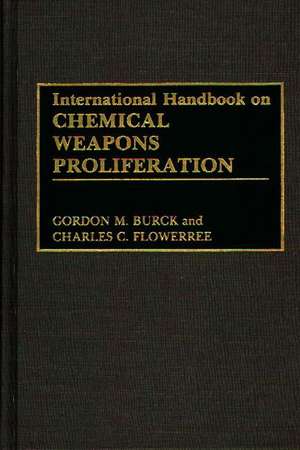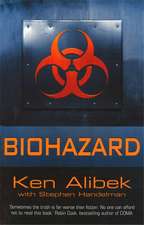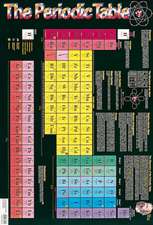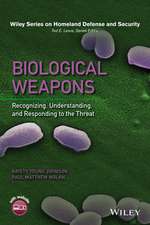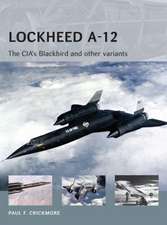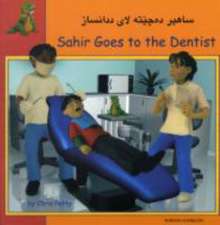International Handbook on Chemical Weapons Proliferation
Autor Gordon M. Burck, Charles C. Flowerreeen Limba Engleză Hardback – 29 aug 1991 – vârsta până la 17 ani
Preț: 330.12 lei
Preț vechi: 559.83 lei
-41% Nou
Puncte Express: 495
Preț estimativ în valută:
63.17€ • 67.55$ • 52.67£
63.17€ • 67.55$ • 52.67£
Carte tipărită la comandă
Livrare economică 17 aprilie-01 mai
Preluare comenzi: 021 569.72.76
Specificații
ISBN-13: 9780313276439
ISBN-10: 0313276439
Pagini: 688
Dimensiuni: 156 x 235 x 42 mm
Greutate: 1.13 kg
Ediția:New.
Editura: Bloomsbury Publishing
Colecția Greenwood
Locul publicării:New York, United States
ISBN-10: 0313276439
Pagini: 688
Dimensiuni: 156 x 235 x 42 mm
Greutate: 1.13 kg
Ediția:New.
Editura: Bloomsbury Publishing
Colecția Greenwood
Locul publicării:New York, United States
Notă biografică
GORDON M. BURCK is Senior Policy Analyst at EAI Corporation, Alexandria, Virginia. He has published Biological and Chemical Weapons in Brief, and, with Barbara Rosenberg, Verification of Compliance with the Biological Weapons Convention in Preventing a Biological Arms Race (1990). His chapter, Modernizing U.S. Chemical Warfare Capabilities: Effects on Deterrence and Arms Control appeared in Technologies for Security and Arms Control (1989).CHARLES C. FLOWERREE is a retired Foreign Service Officer whose last assignment was U.S. Ambassador to the Conference on Disarmament where he was the chief U.S. negotiator on a treaty aimed at banning chemical weapons. He is active with the Committee for National Security in Washington and was a consultant for the Federation of American Scientists while working on this book. He has written on arms control issues for the Los Angeles Times, Newsday, the Columbia University Journal of International Affairs, the Washington Quarterly and other professional publications. He has recently completed a teaching guide on multilateral negotiations for the Johns Hopkins School of International Studies.
Cuprins
PrefaceOverviewThe Chemical Weapons ThreatA Chemical Warfare CapabilityChemical Weapons in the Iran-Iraq WarInterpretation and Analysis of the Evidence of Chemical Warfare CapabilitiesCountry ReviewsMiddle East and North AfricaSouth AsiaEast AsiaSub-Saharan AfricaThe AmericasLong-Range Delivery of CW AgentsControlling the ThreatPolitical Factors and Antiproliferation MeasuresAppendix A: GlossaryAppendix B: Chemical Weapons Production Technology and the Conversion of Civilian ProductionAppendix C: The Geneva ProtocolBibliographyIndex
